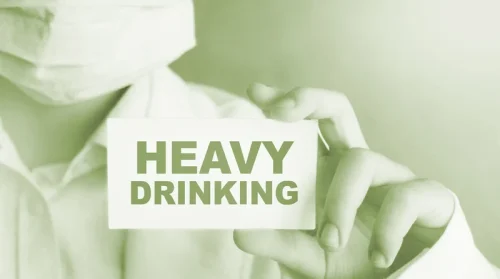
The psychology behind denial involves rationalizing one’s behavior, shifting blame, and avoiding responsibility. Taking care of yourself is essential when supporting someone in denial about their alcoholism. Engaging in self-care practices such as exercise, meditation, or hobbies can help reduce stress and maintain emotional and mental health. Taking the time to educate yourself on the nature of addiction can also be empowering, doing so can help you approach your friend or family member with empathy rather than judgment.

Alcoholic Denial How To Help An Alcoholic In Denial
It’s vital to remember that each situation is unique and requires a tailored approach to intervention. Confidentiality is paramount, and professional interventionists uphold absolute privacy for the individual and family involved. They often have connections to local treatment centers, which can facilitate a smoother transition into treatment programs. By enlisting the support of family and friends, interventionists form a team that encourages the individual struggling with addiction to accept treatment, which is a critical step on the path to recovery. It’s crucial to avoid enabling behaviors that shield the individual from the consequences of their addiction, such as covering for them or downplaying the severity of the situation.
Press Play for Advice On Finding Help for Alcohol Addiction
- These strategies serve to protect the individual’s ego by deflecting the painful realities of their addiction.
- Individuals may feel embarrassed or stigmatized about their drinking habits, especially if they come from families where alcoholism was present.
- We’ll explore how denial manifests itself through specific behaviors and thought patterns.
Under the surface, this form of alcoholism can cause severe psychological and emotional damage to the alcoholic and also their loved ones.. When approaching an alcoholism and denial, it is essential to be empathetic and compassionate. Begin by addressing the issue privately and calmly, while demonstrating your concern for their well-being. Discuss the negative consequences of their drinking habits and emphasize the benefits of seeking help. Along the way, consider involving friends or loved ones in the process for additional support. To increase your success, plan and rehearse your intervention with everyone present prior to the actual confrontation.
How to support your loved one in getting help and getting healthy
It is not your job to “cure” your loved one’s alcoholism, but allowing natural consequences to occur is one factor that can push a person from the pre-contemplative stage to the contemplative stage of overcoming addiction. The key to dealing with alcohol dependency in the family is staying focused on the situation as it exists today. It doesn’t reach a certain level and remain there for very long; it continues to get worse until the person with an alcohol problem seeks help.
Setting Healthy Boundaries
Certain personality traits like independence and perfectionism can create a roadblock to seeking help, as acknowledging the need for assistance could be seen as a sign of weakness or inadequacy. Behavioral signs of alcohol misuse are influenced by alcohol’s effect on brain function, which can alter an individual’s behavior and emotions. These signs include changes in social behavior, neglect of responsibilities, and impaired performance at work or school. Psychological https://ecosoberhouse.com/ symptoms may encompass mood swings, irritability, secrecy about drinking habits, and drinking to cope with stress or emotional pain. Alcohol addiction, also known as alcohol use disorder (AUD), is influenced by a complex interplay of various factors. Research highlights that excessive alcohol consumption can lead to significant brain damage and is a causal risk factor for developing diseases in vital organs such as the heart, liver, pancreas, and brain.

Effective Communication Strategies for Engaging with an Alcoholic in Denial
Natural consequences may mean that you refuse to spend any time with the person dependent on alcohol. Often, in trying to “help,” well-meaning loved ones will actually do something that enables someone dependent on alcohol to continue along their destructive paths. Make sure that you are not doing anything that bolsters their denial or prevents them from facing the natural consequences of their actions. You just happen to love someone who is probably going to need professional treatment to get healthy again. If your loved one has become addicted to alcohol, however, their brain chemistry may have changed to the point that they are completely surprised by some of the choices they make. It’s common for someone with AUD to try to blame their drinking on circumstances or others around them, including those who are closest to them.

There can also be declines in their mental and overall health, especially if they’re not eating healthy diets or engaging in physical activity. As their reliance on alcohol increases, you may begin to notice that your loved one downplays the role alcohol has in their lives and makes excuses for their actions, especially their drinking. You may begin to notice that a couple of beers after work has turned into a six-pack or even a case. As time goes on and tolerance increases, they may attempt to hide the growing problem, and a growing number of empty bottles or cans, from friends and family. While their appearance may not be any different and they can still fulfill their responsibilities, you’ll start to see a pattern develop of turning to alcohol to cope with family, work or personal issues.
It is not surprising that regression analyses in the current data support Hypotheses 2–4, each of which have support in the literature. In both generations, denial was more common among AUD individuals who endorsed fewer DSM-IV criteria, reported lower maximum drinks, and those with alcohol abuse rather than dependence. However, the level of alcohol involvement among these deniers was not benign. This unhealthy level of drinking and life problems portend a potential for more severe future alcohol problems (Schuckit, 2018b).

When you live with a spouse who has an alcohol use disorder, taking care of yourself is important. Although it may seem counterintuitive to focus on yourself first when your spouse may be showing worrisome addictive behaviors, it’s critical to look at your own emotions and needs before you can take steps to help your spouse. Table 1 for probands and Table 3 for offspring each first present data for the entire relevant sample and then separately for Group 1 denier and Group 2 non-denier participants. Denial of an overarching alcohol problem despite endorsement of specific alcohol-related difficulties may be central to development and continuation of alcohol use disorders (AUDs).